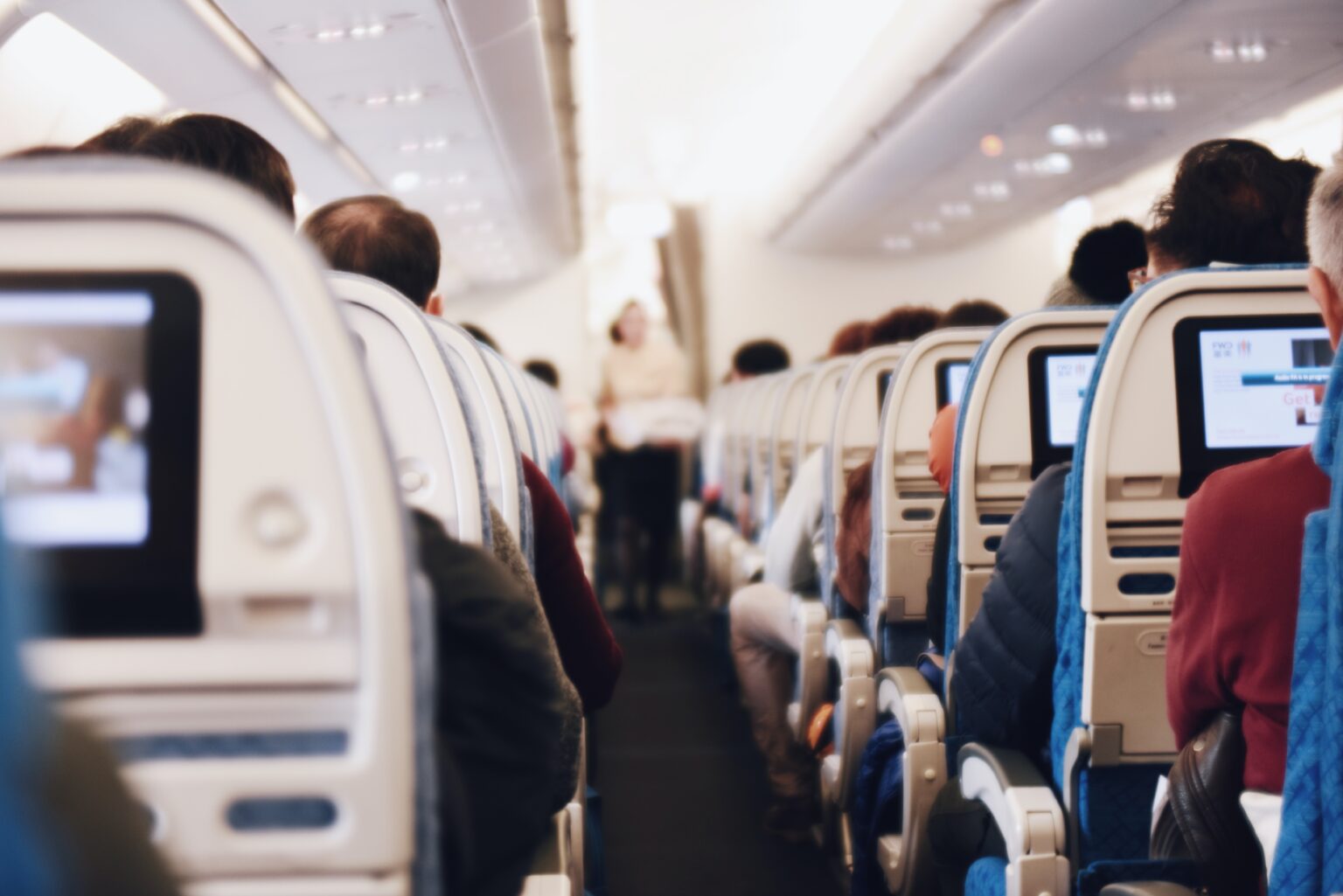As seasoned travelers know all too well, flight delays are an inevitable part of the journey. However, your response to these unexpected setbacks can greatly impact your overall travel experience. In this comprehensive guide, we’ll delve into a range of practical and strategic steps to take when your flight is delayed. From international flights to understanding compensation, we’ve got you covered.
In today’s fast-paced world of travel, flight disruptions such as cancellations and delays are unfortunate yet common occurrences. At Airlinetraveler, we understand the frustration and inconvenience these situations can cause. That’s why we’ve crafted this comprehensive guide to help you navigate the challenges of flight disruptions and ensure you’re well-prepared to handle them with poise and efficiency.
1. Understanding Flight Disruptions
- Flight cancellations and delays can be caused by a variety of factors, including:
- Adverse weather conditions, such as storms or fog
- Technical issues with the aircraft
- Air traffic congestion
- Operational decisions made by the airline, such as crew shortages or aircraft maintenance
- It is important to understand the reasons behind flight disruptions so that you can better anticipate and manage potential challenges. For example, if you know that a particular airport is prone to fog, you can plan your trip accordingly and allow extra time for delays.
2. Preparation Before Your Journey
- There are a few things you can do to prepare for flight disruptions before your journey:
- Organize your travel documents, such as your passport, visa, and boarding pass.
- Pack essential items in your carry-on luggage, such as chargers, medications, and an extra set of clothing.
- Double-check your flight’s status before leaving for the airport. You can do this by checking the airline’s website or using a flight tracking app.
- By taking these steps, you will be better prepared to deal with flight disruptions if they do occur.
3. Immediate Steps When Faced with Disruptions
- If you receive news of a cancellation or delay, the first thing you should do is stay calm. It is important to remain calm and collected so that you can make informed decisions about your next steps.
- Next, you should contact the airline’s customer service desk for assistance. The customer service representative will be able to provide you with information about alternative flights and help you rebook your travel.
- While you are waiting for assistance from the airline, you can also check for alternative flights using mobile apps or the airline’s website.
- It is important to be polite and patient when dealing with customer service representatives. They are more likely to help you if you maintain a respectful demeanor.
4. Maximizing Comfort During Delays
- If your flight is delayed, you may have to spend some time in the airport. Here are a few tips for maximizing your comfort during a delay:
- Explore the airport’s amenities. Many airports offer lounges, shopping outlets, and dining options.
- Stretch your legs with a walk around the terminal.
- Do some work if you have a laptop handy.
- Bring a book or magazine to read.
- Stay hydrated by drinking plenty of water.
5. Utilizing Travel Insurance Effectively
- If you have purchased travel insurance, you should review your policy to understand your coverage for flight disruptions. Depending on your plan, you might be eligible for compensation for expenses like accommodation and meals during delays.
- If you are eligible for compensation, you will need to file a claim with your travel insurance company. The process for filing a claim will vary depending on your insurance company, so be sure to read the policy carefully.
6. Exploring Alternative Transportation Options
- In some cases, it might be worth exploring alternative transportation options such as trains or buses to reach your destination. While this may extend your travel time, it can be a viable solution if flights are severely disrupted.
- If you are considering taking an alternative transportation option, be sure to factor in the cost and travel time when making your decision.
7. Advocating for Your Rights as a Passenger
- Passengers have certain rights under passenger rights regulations. These regulations vary from country to country, so be sure to familiarize yourself with the regulations in your country.
- If you believe your rights have been violated, you should not hesitate to assert your rights. You can do this by contacting the airline or relevant authorities.
8. Making the Most of Unexpected Downtime
- Flight disruptions often lead to unexpected downtime. Here are a few tips for making the most of unexpected downtime:
- Catch up on reading.
- Listen to podcasts.
- Get some work done if possible.
- Relax and enjoy the time to yourself.
9. Learning and Adapting from Experiences
- Every flight disruption is a learning opportunity. Reflect on your experiences and consider what you could have done differently to improve your response or minimize the impact of future disruptions.
- By learning from your experiences, you can become a more empowered traveler who is better prepared to deal with flight disruptions.
10. Conclusion: Empowered Travel Despite Disruptions
Navigating flight disruptions requires a combination of preparation, resourcefulness, and adaptability. By following the steps outlined in this guide, you can transform the challenges of flight cancellations and delays into opportunities for personal growth and more confident travel experiences.
Remember, while flight disruptions are beyond your control, your response and attitude towards them can greatly influence your overall travel journey. Stay informed, stay positive, and stay prepared – the world of travel is yours to conquer, no matter the obstacles.
Disclaimer: The information provided in this article is for general informational purposes only and does not constitute professional advice. For specific guidance related to your travel situation, consult with relevant authorities and professionals.
Whether you’re a seasoned traveler or embarking on your first journey, being prepared for disruptions is the key to maintaining a positive travel experience. Utilize the insights shared in this comprehensive article, and remember that your journey is a blend of destinations and detours, each contributing to a richer travel narrative.
Share these tips with fellow explorers, leave your thoughts and questions in the comments below, and bookmark this guide for quick reference. Together, we can transform flight delays into opportunities for growth, exploration, and making the most of every moment in your global adventure. Safe travels!
People Also Ask
Things to do if your flight is delayed international?
When faced with an international flight delay, stay informed through official channels and explore the terminal’s amenities. Additionally, communicate with the airline’s customer service for updates and alternatives.
How long does your flight have to be delayed to get compensation?
The criteria for compensation due to a flight delay can vary by region and airline policy. However, in the European Union, for example, passengers are generally eligible for compensation if their flight is delayed by three hours or more upon arrival, depending on the distance of the flight and other factors. It’s essential to review your airline’s specific policies and the regulations of the region in which you are flying to determine the eligibility criteria and compensation amounts for delayed flights.
Can I get compensation for a delayed flight?
Yes, you may be eligible for compensation if your flight is significantly delayed, canceled, or overbooked, depending on various factors including your flight’s departure and arrival locations, the airline’s policies, and local regulations. In the European Union, for example, Regulation (EC) No 261/2004 stipulates passenger rights and compensation for delays. However, the specific rules and amounts of compensation can vary, so it’s essential to check with your airline and understand your rights based on the region and circumstances of your flight.
Why are flights being delayed?
Flight delays can stem from various factors, impacting your travel plans. These include adverse weather conditions, air traffic congestion at busy airports, mechanical issues requiring repairs, crew scheduling problems, security-related delays, late arrivals of incoming flights affecting connections, airport operational issues, airline-specific challenges, airspace restrictions, and even rare in-flight medical emergencies. Understanding these causes can help travelers prepare and adjust their plans accordingly, ensuring a smoother journey.
How Much Compensation Should You Get for Flight Delay?
The amount of compensation you should receive for a flight delay depends on various factors, including the length of the delay, the distance of your flight, and the specific airline’s policies. Generally, for flights within the European Union, passengers are entitled to compensation ranging from $250 to $600 for delays of three hours or more, depending on the distance. In other regions, such as the United States, compensation is not mandated by law, but airlines may provide compensation, such as meal vouchers or travel vouchers, at their discretion. It’s important to check your airline’s terms and local regulations to determine the compensation you might be eligible for in case of a flight delay.
How long can you wait for a delayed flight?
The duration you’re willing to wait for a delayed flight depends on factors like your travel plans and the airline’s policies. It’s advisable to consult with airline staff if the delay becomes excessively long.
Should you still go to the airport if your flight is delayed?
Yes, it’s recommended to go to the airport as scheduled. Delays can change, and being at the airport ensures you receive timely updates from the airline.
Who pays if your flight is delayed?
Airlines are responsible for compensating passengers for significant delays. Compensation may include meal vouchers, accommodation, and rebooking on the next available flight.
What if my flight is delayed by 2 hours?
A 2-hour delay is considered moderate. Stay updated through the airline’s channels and engage in activities within the airport.
Can a delayed flight go back to on time?
Yes, a delayed flight can catch up and depart on time if the cause of the delay is resolved within a reasonable timeframe.
What if my flight is delayed by 3 hours?
A 3-hour delay is significant, often leading to compensation from the airline. Familiarize yourself with the airline’s policies on compensation.
Can planes fly faster if delayed?
Planes have preset speeds, and while minor adjustments are possible, significant speed changes due to delays are unlikely.
In other article, Luxurious Tranquility at 30,000 feet: Delta One Suite on NYC to Paris Flight







